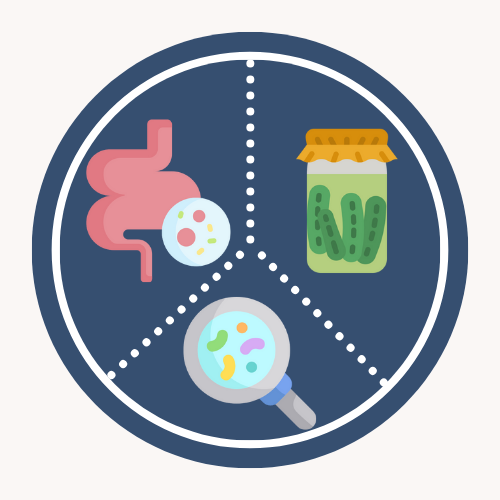Investigation of intestinal ecosystems with probiotics and prebiotics
Current & Past Funding
- Novo Nordisk Foundation
- National Institutes of Health
- California Dairy Resarch Foundation
- USDA NIFA AFRI
- American Diabetes Association
Prebiotics and Probiotics are added to foods and beverages to confer health benefits in the human digestive tract. We are employing these dietary components to study the interactions between bacteria and the host which influence immune function and digestive health. Probiotic Bifidobacterium and lactobacilli like Lactiplantibacillus plantarum and Lacticaseibacillus casei are being investigated for their adaptations to plant and dairy matrices to understand how food carriers and host diet effect intestinal persistence and interactions with intestinal epithelial and immune cells and the native microbial communities residing in the gut. Our studies on prebiotic ingredients are establishing the effects of fermentable fibers on intestinal community composition, including Lactobacillus and Bifidobacterium species, and the mechanisms by which those microorganisms can influence health.
Lactic acid bacteria (LAB) associated with plants and plant-based fermentations
Current & Past Funding
- Fermented food processors
- California Department of Food & Agriculture
- USDA AFRI NIFA
LAB are essential for the production of many fermented plant-based food and beverages. These fermented foods are important components of the diet in many human cultures worldwide. At present, the niche specificity of LAB strains for growth and survival on living plant tissues is not well understood. In our lab, we study the specific adaptations of LAB to plants and the microbial community succession events which occur during plant tissue fermentations. This knowledge will result in improved management of food, feed, and fuel fermentations and establish the relationships between LAB integral to our food supplies and the LAB colonists of the human gut.
Promoting food safety and quality through microbial community management
Current & Past Funding
- Center for Produce Safety
- USDA AFRI NIFA
- California Almond Board
- UC Davis RISE program
Food borne illness is associated with the consumption of fresh fruits, vegetables and nuts contaminated with human pathogens. We are studying the effects of the native microbiota inhabiting fresh produce on human pathogens which might come into contact with those plants in the field. These studies also include molecular genetic analysis of specific lactic acid bacteria (LAB) which serve as potential antagonists of human pathogens or are otherwise important for quality control in food industries. Similarly we are applying modern high-throughput methods to identify and quantify the bacteria in dairy processing chains for rapid and accurate assessments of milk quality and safety.
